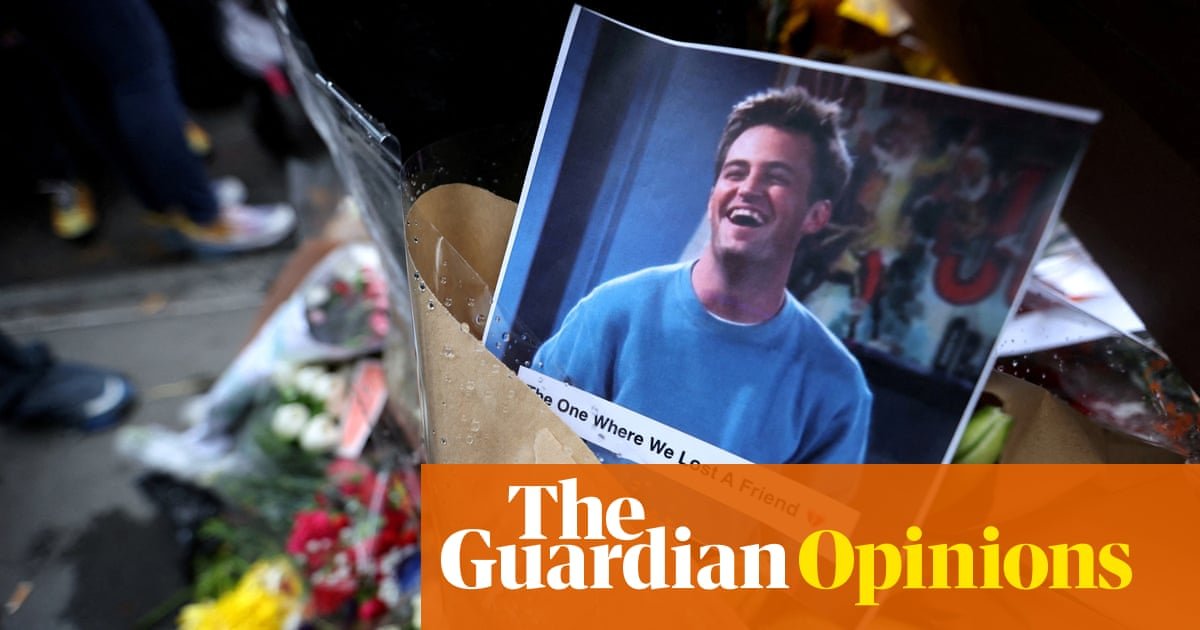“I loved the way I dedicated my services to her,” wrote Dr Conrad Murray of his “most noble” patient. “It was totally selfless because when I agreed to serve her, I literally had no idea that she was then widely known.” Sure, sure. And the name of that patient, which I feel certain this most self-effacing physician might be persuaded to offer up? “The world renowned quintessential nun who is now a saint: Mother Teresa.”
Well, that would have been quite the two-fer. Because, of course, Dr Murray – who has yet to be canonised but who recently opened his new medical institute – is arguably better known for being the treatment professional who repeatedly bunged Michael Jackson a general anaesthetic so the singer could avoid his well earned sleepless nights. After one of these ministrations killed Jackson, Murray eventually served jail time for involuntary manslaughter, after which he wrote the book in which that Mother Teresa anecdote appears. Don’t take that as a recommendation – it’s a namedropping word salad/self-justification that was sadly not titled Celebrities I Didn’t Kill.
It’s hard not to be reminded of Murray when reading the tragic new details of Matthew Perry’s death. The Friends actor was found dead in his hot tub last year, sparking a police investigation. Among the five now charged – including his long-term personal assistant, Kenneth Iwamasa, who prosecutors say had injected him with ketamine three times on the day of his death – are two medical doctors. Their messages show them mocking Perry as they discuss how much to charge him for the off-label drugs they are funnelling him alongside high-end drug dealers. “I wonder how much this moron will pay?” wrote Dr Salvador Plasencia to another doctor, Mark Chavez. “Let’s find out.”
In another message, Plasencia stated that he wanted to be the actor’s “go-to for drugs”. Perry spent $55,000 on ketamine worth a tiny fraction of that in the month before his death. It was Plasencia who taught Iwamasa how to administer ketamine, having already once injected the star in a car park, and again at home at a dose that allegedly caused Perry to “freeze up”. “Let’s not do that again,” he breezed to the actor’s assistant. When Perry died, the coverup began. “I’m 90% sure everyone is protected,” wrote one of the accused. “I never dealt with [Perry] only his assistant. So the assistant was the enabler.” Oof.
Addiction takes many forms, and there will always be those for whom the term “enabler” seems absurdly benign. But we expect infinitely more from doctors than we do from drug dealers. Consider the spectacle of Katie Price returning from Turkey, where some greedy surgeon or surgeons recently performed her 17th boob job and sixth facelift. On arrival at Heathrow last week, a bandaged and seeping Price was photographed being loaded into a custody van, arrested for skipping a bankruptcy hearing to travel for the surgery.
The truth is that predatory yes men are a tale as old as Hollywood itself, and certainly not limited to it. Even at its most functional, there is a version of Matthew Perry’s support system around every big star, and the fine line between them offering assistance and becoming a team of parasites must always be guarded. Absolute power is its own kind of peril. The most dangerous position anyone with the means can get themselves into is one in which no one can say no to them. Perhaps it is remotely possible to dredge up some sliver of understanding for Perry’s assistant, the sad old retainer of 25 years’ standing, whose own identity might long have been subsumed by that of his master. But no one should extend any such understanding to the medical professionals who have allegedly perverted every oath they ever took.
As for why bent doctors do it, the answer is money but also power. If the celebrity feels godlike, then so too do the physicians. It’s clearly a power trip to have this gilded deity at their weakest and most needy, begging you for what they want. The prosecutor at Murray’s trial declared that he had got sucked into “a cycle of horrible medicine”, covertly taping his client at his lowest moments, which I’m pretty sure they don’t teach you in medical school. Or as Murray himself preferred it: “I don’t feel guilty because I didn’t do anything wrong.”
In most of these cases, it’s notable how often the supposedly powerful person’s body itself is so explicitly a host organism and moneymaker. In life-support suites in western private hospitals, Middle-Eastern princes are kept alive way beyond decency presumably in order that their vast familial entourages continue to receive the funds that flow from them and dry up considerably on death. Jackson engaged Murray full-time, having committed to a series of demanding concerts. After his demise, years of boosted accounts found people reflecting that he was actually worth more dead. Price’s surgeries are swiftly converted into documentaries and staged paparazzi shots. They pay for themselves, she would no doubt argue, though the reality is that she and those around her pay psychologically for it all. We already know that Perry spent much of the final period of his life feeling he had to hide his addiction, as so many people depended on the hopeful idea of his having got clean.
“When I die,” he once said, “I want helping others to be the first thing that’s mentioned.” That currently feels a heartbreakingly optimistic thought. For now, this is a story of others cashing in. Physician, help thyself.
